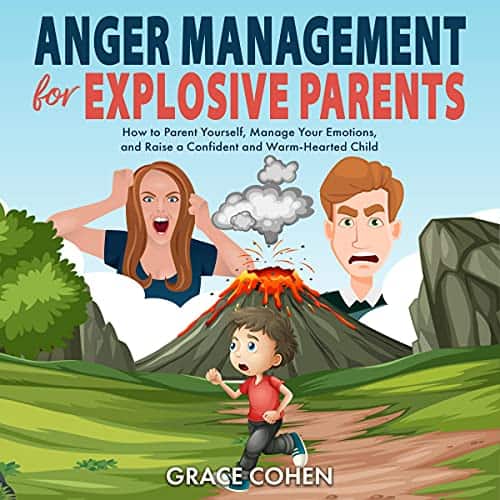Understanding and Managing Your Child’s Explosive Anger: A Parent’s Guide
Welcome, wonderful parents! If you’ve ever felt at a loss about how to deal with your child’s sudden outbursts of intense anger, you’re not alone. Explosive anger in children can be alarming and challenging to handle, but I’m here with some great news: There are effective and compassionate strategies to help your little one, and consequently, the whole family, find peace and better emotional management.
What is Explosive Anger?
First off, let’s understand what we mean by explosive anger. This is more than just a small tantrum over a broken toy. It’s an intense reaction that can seem disproportionate to the situation. It can involve shouting, aggressive behavior, and even physical actions. It’s important, though, not to feel discouraged; this behavior often indicates that a child doesn’t yet have the proper tools to express their feelings in a more constructive way.
Recognizing the Signs of Explosive Anger
Recognizing the signs early on can prepare you to respond appropriately. Signs that your child might be prone to explosive anger include:
- Irritability over minor inconveniences.
- Frequent frustration when things don’t go their way.
- Physical actions, such as hitting or throwing objects when upset.
Now that we’ve identified some signs, let’s explore how to navigate these intense emotions together.
Understanding the Triggers
Diving into the world of emotional triggers, it’s crucial to detect what sparks your child’s anger. Triggers can vary greatly – from hunger and tiredness to feeling misunderstood or experiencing a sense of injustice. The key to untangling these triggers is observation and reflection. By being a detective in your child’s emotional world, you’ll start to see patterns that can illuminate the underlying causes of their anger.
Responding to Explosive Anger
Responding to these intense emotions can be daunting, but here’s the thing: Your response can greatly influence the outcome of a volatile situation. The most important piece of advice I can offer is to stay calm. Easier said than done, right? But with a little practice and deep breaths, you’ll be modeling the self-control you want to see in your child. Here are some pointers:
- Maintain a gentle but firm voice.
- Give them space if they need it but ensure they’re in a safe place.
- Listen actively to their concerns, validating their feelings without condoning any harmful behavior.
- Introduce calming strategies such as deep breathing or a quiet space where they can reset.
Remember, explosive anger is often a sign of distress. Just as a fever indicates a physical ailment, explosive anger is an emotional symptom that your child is struggling with something internally.
Establishing Healthy Coping Mechanisms
Developing healthy coping mechanisms is an essential tool in your parenting toolkit. Teaching your child to recognize their emotions and use words to express their feelings can make a world of difference. But it goes beyond just talking. Encouraging activities that foster emotional regulation, such as sports, arts, or just outdoor play can have therapeutic effects on a child’s propensity for anger.
Taking it step by step, recognize that managing explosive anger is a journey. Your patience, understanding, and consistent support can guide your child toward healthier emotional expression. And remember, even on the tough days, your love and dedication are making a big difference in your child’s life. You’re laying the groundwork not just for calmer reactions to frustration but for emotional intelligence and strength that will serve them throughout life.
Stick around for more insights as we unpack the toolbox for managing explosive anger effectively. Together, we will explore intervention techniques, how to create an emotionally supportive home environment, and ways to strengthen the parent-child bond in the face of challenging emotions. You’re making strides on a path to happier, healthier family dynamics, and that’s something to be truly excited about!

5 Things Parents Should Know in Preparing for Explosive Anger
As you journey through the process of helping your child manage their explosive anger, here are five crucial things to keep in mind:
1. Early Intervention is Key
Addressing angry outbursts as soon as they start manifesting can prevent more severe issues in the future. Early intervention comes with understanding and swiftly handling the anger in a constructive manner, providing your child with the tools for better emotional regulation.
2. Consistency is Crucial
Children thrive on consistency. Try to respond to anger outbursts with a predictable pattern of behavior. Whether it’s a time-out, a discussion, or a calming activity, a consistent response helps your child know what to expect and learn from the experience.
3. Self-Care is Essential
Caring for a child with explosive anger can be stressful for you as a parent. Remember that your own self-care is essential. By ensuring you are well-rested, calm, and emotionally stable, you’ll be better equipped to manage your child’s needs.
4. Support Networks Make a Difference
You don’t have to do it alone! Support networks, whether online or in your local community, can provide invaluable advice, shared experiences, and emotional backing. Furthermore, seeking professional help from a child psychologist or therapist can offer targeted strategies and support.
5. Patience Leads to Progress
Changes won’t happen overnight. It’s important to approach each situation with patience. Celebrate the small victories with your child and acknowledge their efforts to control their anger. Your positive reinforcement can go a long way in motivating further progress.
By staying informed and proactive, you will not only help your child manage their explosive anger but also nurture their overall emotional development. Keep in mind that there will be challenges, and some days will be easier than others. Yet, your unwavering support will provide your child with a solid foundation to grow into a well-adjusted individual capable of handling their emotions constructively.
See more great Things to Do with Kids in New Zealand here. For more information see here
Disclaimer
The articles available via our website provide general information only and we strongly urge readers to exercise caution and conduct their own thorough research and fact-checking. The information presented should not be taken as absolute truth, and, to the maximum extent permitted by law, we will not be held liable for any inaccuracies or errors in the content. It is essential for individuals to independently verify and validate the information before making any decisions or taking any actions based on the articles.




